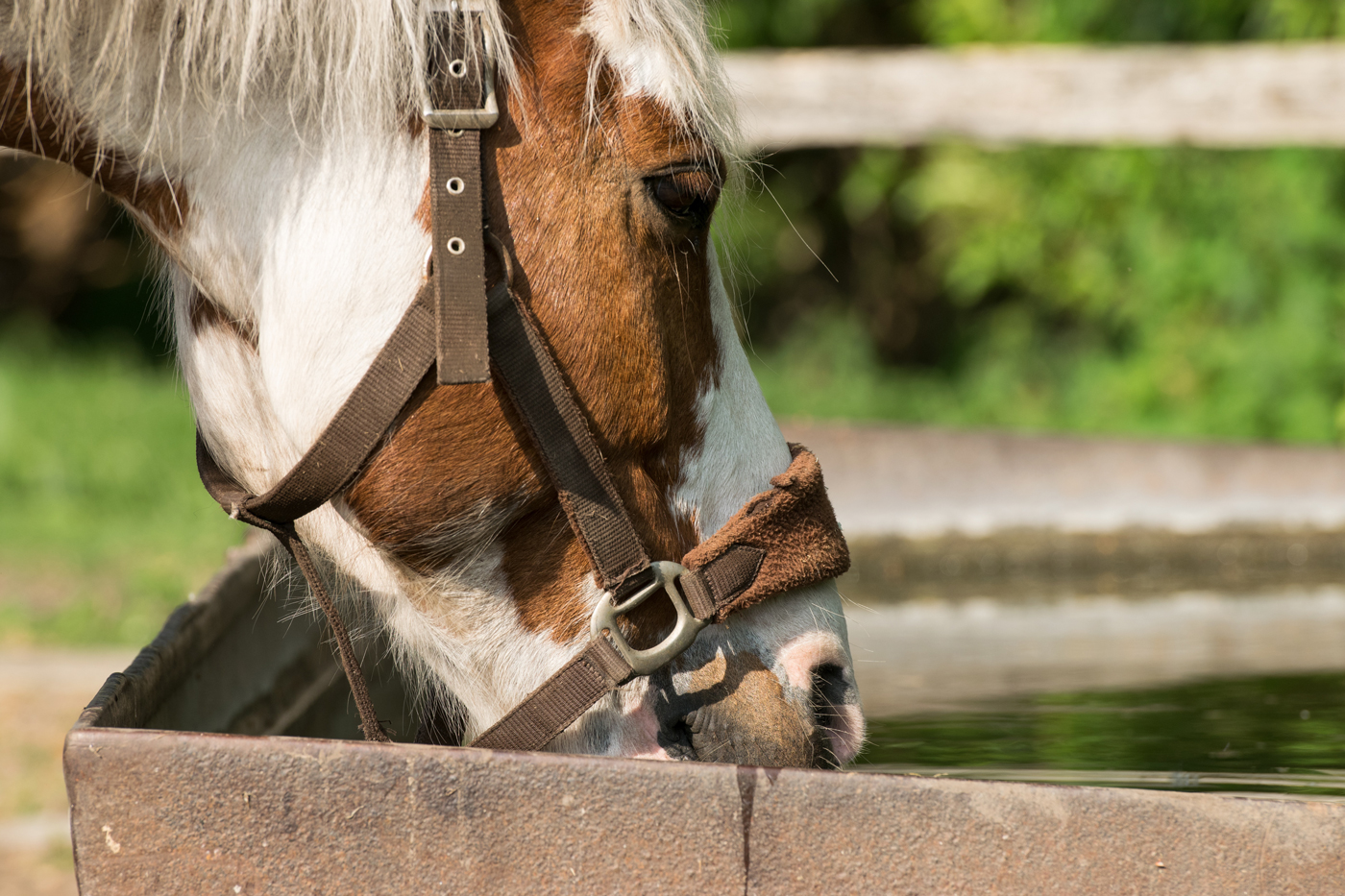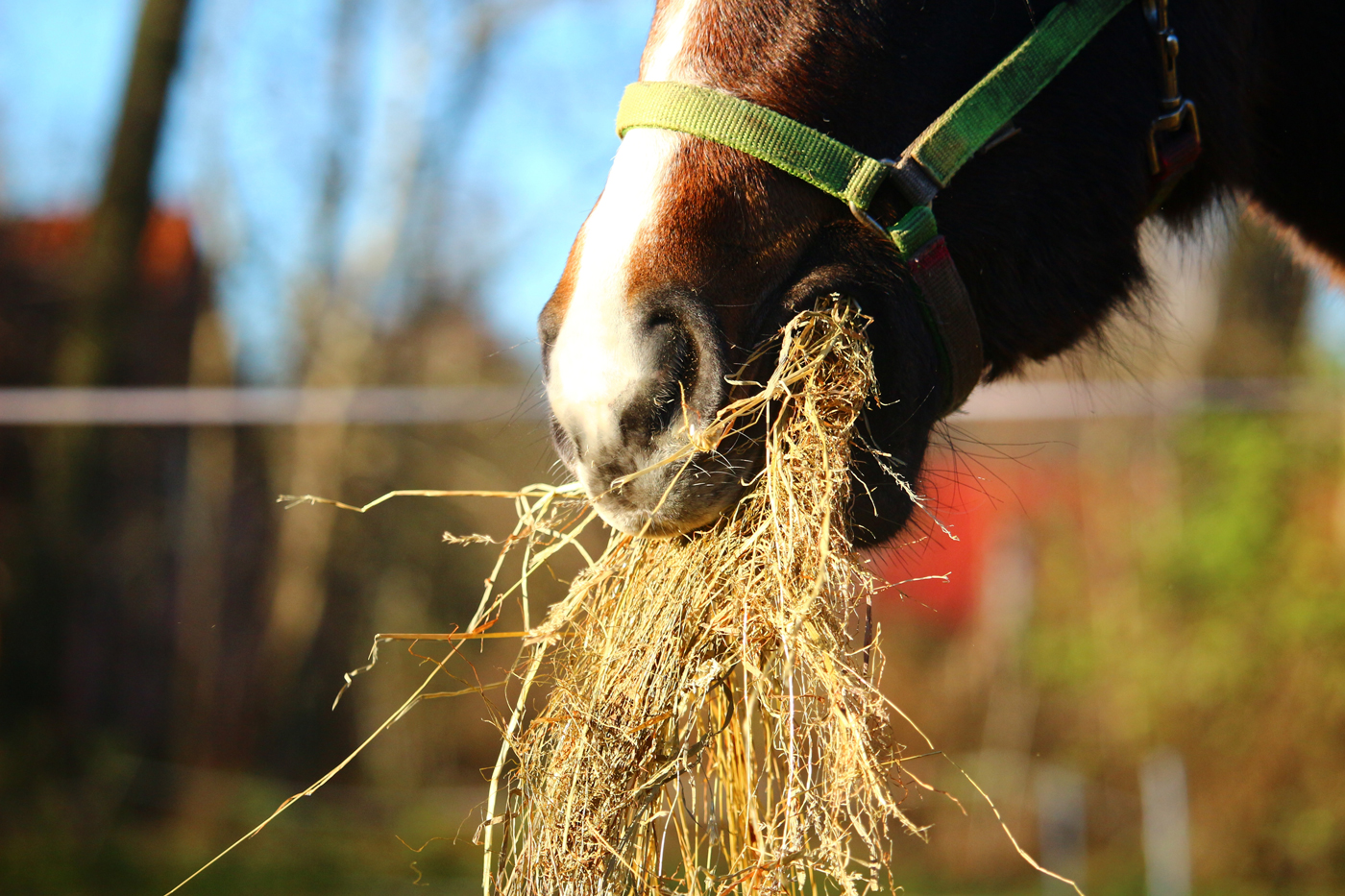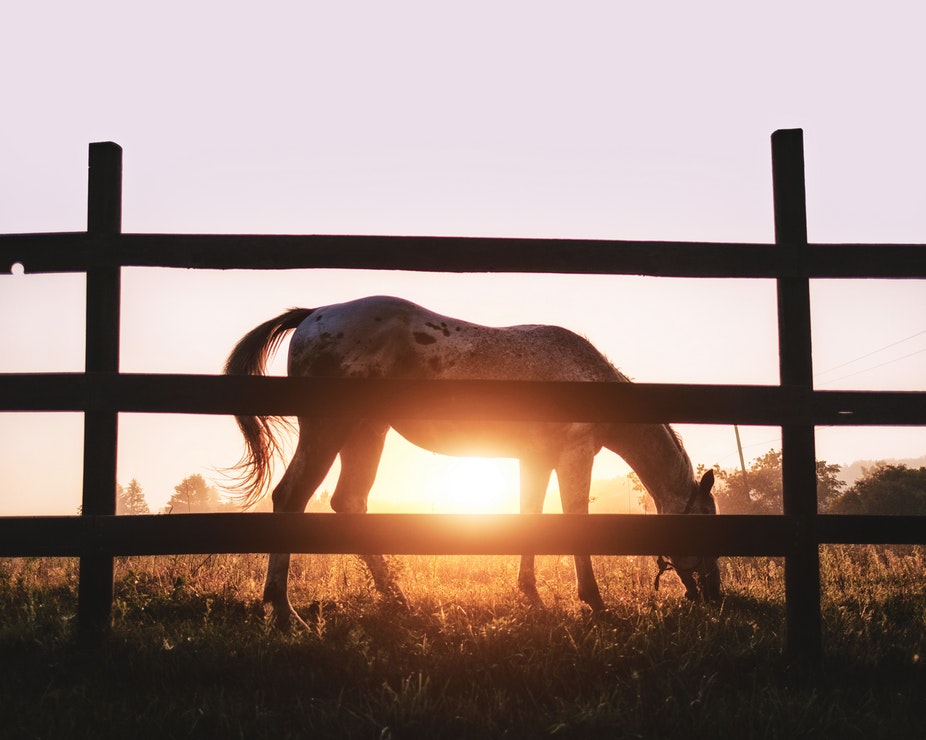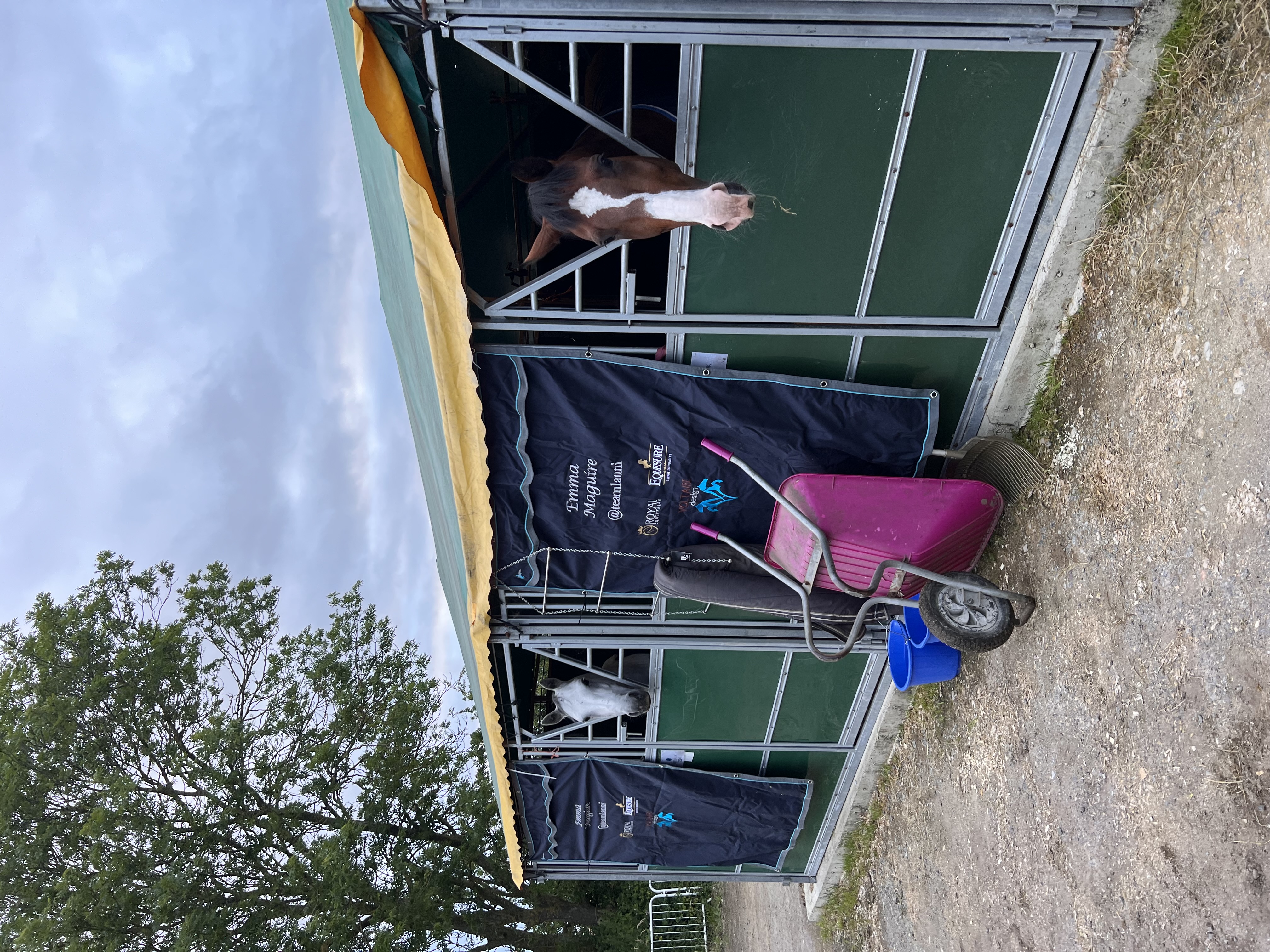It goes without saying that you want your horse to live a long and prosperous life – a balanced diet is the biggest contributing factor to this.
If you’re new to the world of horse ownership – or just want to ensure that you’re feeding your equine the best possible diet – you’ve come to the right place.
In this article, we’ll look at what should be included in a horse’s diet and the importance of each nutritional element.
We’ll also cover what things could do your horses harm if they were to consume them.
If your horse becomes ill, vet bills can quickly rack up, which is why it’s so important that you have adequate horse insurance.
Horse insurance policies from Equesure can cover horses valued up to £750,000 and provide up to £12,500 towards vet fees throughout the year.
Here is a quick rundown of what constitutes a balanced diet for a horse and a few things to avoid:
-
Fresh clean water
Just like any animal, horses must have continuous access to fresh clean water.
According to the RSPCA, an average 500kg (approximately 15hh) horse drinks around 30-50 litres a day. This amount can increase in hot weather – and when it has worked hard – as a horse will need to replenish the water reserves used up in sweating.
A mare with a foal needs more water because the milk that she is producing to feed the foal requires water.
It’s important that you regularly refresh a horse’s source of water.
If a horse ends up drinking water that is contaminated with dirt, algae or manure/urine they can become sick.
Sometimes a horse will refuse to drink if they can smell that the water is polluted or stagnant, which can lead to dehydration.

-
Field Grass and tender plants
Horses are herbivores. This means that they eat only plants.
Horses should be provided with as much opportunity to graze on pasture as possible. Twenty-four hour access is ideal.
That’s because horses have evolved to eat and process large volumes of relatively low quality (low calorie) grasses and other plants.
As long as the pasture is good, it will contain most of the nutrition a horse requires to be healthy.
Grass also contains silica, which contributes to good dental health.
Grass can provide a balanced diet for your horse all year round but be aware that during the winter months the energy content of the grass falls – this is why it is sometimes necessary to supplement a horse’s diet with other things.
-
Hay
If there is not enough pasture for your horse or pony to feed from, hay is the next best option for them.
Not just any old hay will do, however – you need to find a good equine hay that is well matched to your horse’s lifestyle.
Just as with grass, hay varies enormously in calorie content.
So, if your horse is prone to putting on weight, you should try to source low-calorie hay.
Make sure you know what you’re buying, so that any shortfalls in vitamins and minerals can be compensated for with supplements.

-
Grains & Hard feed
You might see some websites suggest that you feed your horse ‘straights’. These are cereals and grains, such as oats and barley.
These are often rolled, crushed, bruised or heat-treated to increase their digestibility.
These are quite old fashioned methods of feeding, there are modern alternatives available and it’s best to speak to a nutritional feed specialist to create the best feeding plan for your horse.
We recommend taking advantage of TopSpec’s nutrional advice helpline to ensure you are providing the right balance.
Feed provides energy and nutrients for horses who are regularly put through their paces and taking part in competition.
If hard feed is fed to horses in light work or to ponies they may cause the animal to become overweight or difficult to manage.
Hard feed should only make up only a small percentage of the horse’s diet, with roughage (hay and grass) making up the majority.
Horses fed diets low in forage and high in straights are at risk of digestive problems because feed doesn’t require the chewing time, which doesn’t match up with horses’ long digestive systems.
-
Salt and minerals
When a horse sweats they obviously lose water from their body, but also electrolytes which need to be replenished through their diet with salt and other minerals.
Providing a salt lick either in the stable or field should be enough to meet their sodium requirements.
However, if your horse gets through a fair bit of work in a day, you’ll need to up their intake of salt.
Horses consuming inadequate amounts of sodium are more likely to suffer from heat stress and electrolyte imbalances than those consuming the correct daily intake of sodium and chloride.
Hygain advises that a horses with a moderate work rate will require 17.8 grams of sodium and 53.3 grams of chloride – but this will increase again if the weather is hot.

-
Treats
We all like to treat our horses from time to time – it makes us feel good seeing them enjoy their food.
But you just need to be careful not to overdo the treats.
A horse will eat most things – even meat – because they don’t know what is good for them.
However, avoid giving him meat or too many sugary treats, as these are not something horses would naturally consume.
Feeding a horse meat could lead to serious problems.
This is because horses cannot vomit– so they can’t clear their system of anything bad for them – so it’s best to just avoid letting your equine have the occasional bite of your hamburger, to be on the safe side.
They get a condition called colic instead which can be fatal or very expensive if your horse needs surgery.
Equesure have specialist colic cover available for occasions like this of up to £7,500 per incident.
Things that you shouldn’t feed your horse

If you feed your horse the wrong foods it can cause them a lot of discomfort and pain, and even damage their digestive and urinary system.
Here are some of things you should avoid feeding your horse, according to Horsemart:
- Tomatoes
- Chocolate
- Dairy products
- Bread
- Potatoes
- Stone fruits
- Avocado
- Cabbage, broccoli & cauliflower
- Lawn clippings & compost
The best advice we can give is that if you want to try something new with your horse’s diet, consult a vet or equine nutritionist first.
Invest in horse insurance
Due to the nature of the way horses are built, they can be prone to spells of ill health.
So, it’s essential that you take out comprehensive horse insurance which will cover you in the event of a number of different circumstances.
Equesure are equine insurance experts, we have over 60 years combined equestrian knowledge and will endeavour to find an insurance policy, tailored to your needs, for you, your horse and your transport.
Working with a varied and trusted panel of insurers, Equesure offer clients a bespoke horse insurance policy with various options of cover to ensure the policy is right for you.
Get a quick quote today.







